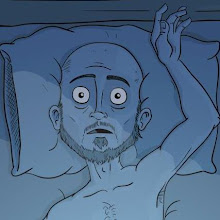
Set against the backdrop of 1920s China, The Painted Veil tells the story of Kitty Fane (Naomi Watts), an upper class English woman who marries a young doctor to escape her overbearing mother. Kitty and her husband, Walter (Edward Norton) relocate to Shanghai, where she meets Charlie Townsend (Liev Schreiber), a man she begins an affair with. Walter discovers the affair and offers Kitty an ultimatum. Divorce, or accompany him to a remote Chinese village, where a cholera epidemic has broken out. Kitty chooses the later and the couple move to the village, miles from anything resembling civilization. Walter's cold indifference to his wife leaves her bored with her life. She takes a job in the local convent and, being close to her husband's work, she begins to see him in a different light. Meanwhile, the Chinese people begin to grow tired of English rule, and the seeds of revolution begin to take root all over the country.
Based on W. Somerset Maugham's novel of the same name, The Painted Veil is a romantic drama, but not the kind that pits two lovers who fall for each other at first sight. Instead, this is a story that is based around anger and resentment, and how love can evolve from these emotions. Edward Norton is back on form after a terrible performance in The Illusionist. His Dr. Walter Fane is a cold academic, unused to dealing with people. He says himself, he has become used to talking only when he has something to say. This kind of personality is at odds with his wife, the sort of spoiled aristocrat, used to parties and dancing. Naomi Watts proves she is one of the finest actresses in the business, playing a woman rejected twice, and feeling desperately alone in a world she it totally unused to. Apart from being jilted by a lover and treated indifferently by her husband, she finds herself becoming bored with her existence. Watts plays this her character as a delicate, graceful yet rebellious woman, thrown into a world of poverty and disease, a world that she cannot get used to.
The film starts off at a slow pace. Though we are taken quickly through the affair and the departure from Shanghai, once the film transports us to rural China, the guts of the story are tackled. Director John Curran paints an incredibly beautiful picture of the countryside, and really captures the tone and mood of those period dramas from the 1950s. However, the story is somewhat thin. There are the seeds of some very interesting stories concerning the uprising of the Chinese people against the foreigners in their country. Or indeed, the cholera epidemic, and how this was dealt with. However, these plot points are hardly dealt with due to the focus on the two main characters. Which isn't surprising really, as this is a romantic drama. But with a story that is so simply set revealed, you feel there could have been more of a place for subplot. Despite this, the film manages to hold your attention. And with two actors on top form, ample support from Schreiber and British character actor, Toby Jones, and a simply stunning backdrop, you can forgive the shortfalls of this film. Worth checking out.











